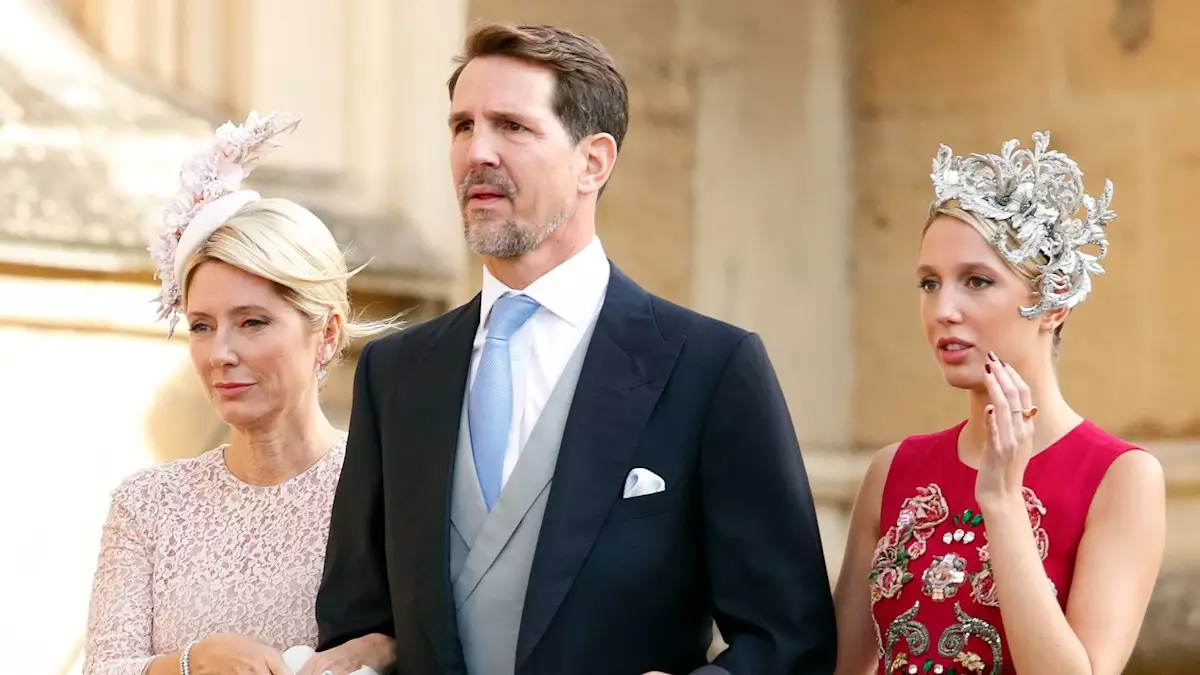The ethos of nationhood and identity often evokes powerful emotions, especially when those at the center of the discussion possess a royal lineage. The Greek royal family finds itself at a unique crossroads in its history, attempting to reclaim its citizenship in Greece, a nation that transitioned to a republic over fifty years ago. The recent actions by the royal family signify not only a personal yearning for connection to their homeland but also a broader commentary on national identity and the legacy of monarchy in modern governance.
In a significant evolution towards reconciliation and acceptance, members of the Greek royal family have acknowledged Greece’s status as a republic. This gesture marks a departure from previous stances held by the family, notably tied to their history and the tumultuous events surrounding the abolition of the monarchy in 1973. The family’s decision to modify their surname to ‘de Grece’ — translating to ‘of Greece’ in French — signifies a renewed commitment to their home country, stripping away the mantle of sovereignty that once defined their legacy.
The process of regaining citizenship, however, is not without its complexities. A necessary move to publish a government decision in the official gazette acts as both a procedural hurdle and a reminder of the historical rift between the monarchy and the republic. As history would have it, King Constantine II was stripped of his citizenship in 1994 amid contentious disputes surrounding royal properties. The new generation must now navigate these challenges as they seek to redefine their relationship with Greece.
King Constantine II’s reign from 1964 to 1973 was characterized by profound political strife. The military junta’s overpowering of his rule led to his exile, which stretched over decades and distanced him from his cultural roots. King Constantine’s return to Greece in 2013 after a long span of living abroad reflects a deep-seated desire for reconciliation and a connection to the land of his ancestors. His death on January 10, 2023, marks the end of an era, but the implications of his decisions and the actions of his family linger.
Athanasios Balerpas from the Interior Ministry’s remarks encapsulate the sentiment stemming from this critical juncture: “A historically pending matter is being resolved.” This statement sheds light on a common theme—historical accounts intertwined with national identity. The royal family’s actions serve to close the chapter on a contentious relationship with the populace while paving the way for a future devoid of royal pretensions.
Interestingly, the royal family’s activities haven’t entirely revolved around broad constitutional debates; rather, they continue to partake in moments of joy that resonate with common citizens. Recently, Princess Theodora’s marriage to Matthew Kumar served as a unifying occasion, creating a heartfelt connection with the public. Their wedding was a remarkable affair, marked by public celebrations and visible affection from family members—a contrast to the historical tensions associated with the royal lineage.
The enthusiastic response from gathered crowds during Theodora’s nuptials illustrates that while the institution of monarchy might be defunct, the emotional ties to royalty persist. The outpouring of support, particularly from Crown Prince Pavlos, indicates a shift in dynamics—where joy is shared rather than cloaked in historical grievances.
The Greek royal family stands at a pivotal moment, striving for acceptance not just as members of a bygone monarchy but as contributors to the modern Greek identity. Their quest for citizenship reflects a broader narrative of redemption, healing, and unity. How the people of Greece receive this initiative remains uncertain, but there’s a palpable sense that the royal family’s continued presence may serve more than ceremonial purposes; it could symbolize a bridge between Greece’s storied past and its diverse present. As they seek to apply for state identity cards and Greek passports, only time will tell whether the monarchy’s legacy can coexist with the current republican framework that defines Greece.

